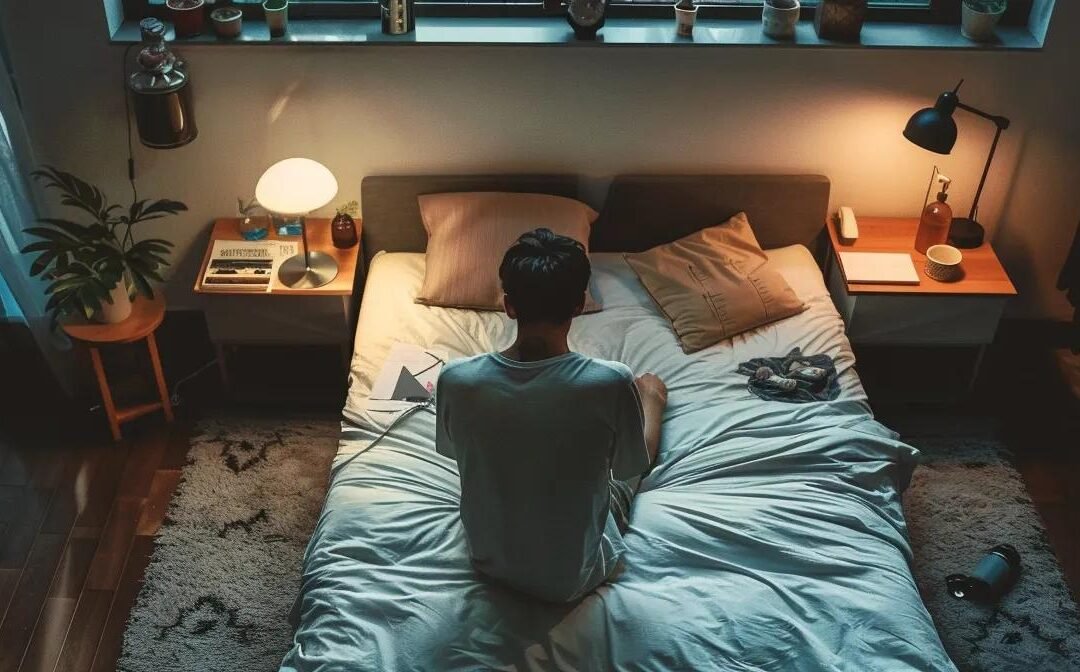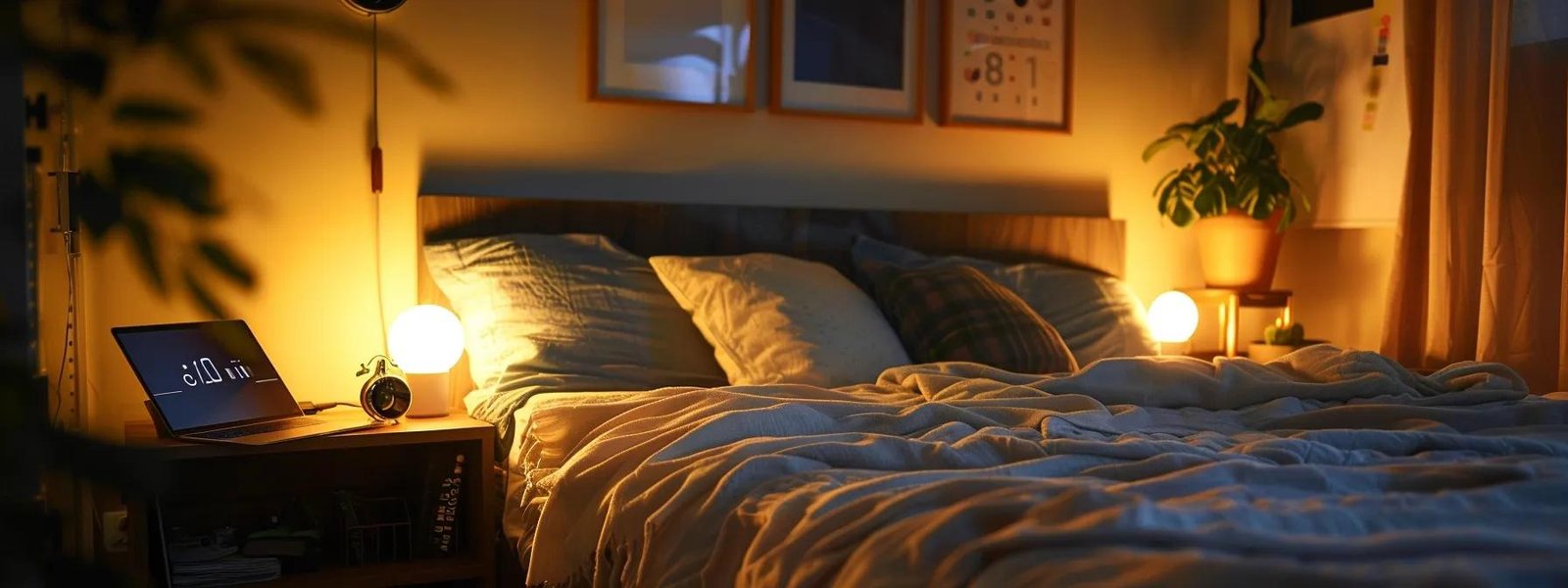7 Hidden Causes of Sleep Difficulties and How to Identify Yours
Do you often find yourself tossing and turning at night, wondering why restful sleep eludes you? Sleep difficulties affect millions, yet many hidden causes remain unrecognized. This article explores common hidden causes of sleep difficulties and provides practical guidance for identifying personal triggers and implementing effective solutions. By understanding factors such as stress, poor sleep hygiene, underlying medical conditions, mental health challenges, and environmental influences, you can take proactive steps toward improved sleep. Read on for expert advice, simple self-assessment techniques, and actionable strategies that empower you to reclaim peaceful sleep.
What Are the Most Common Hidden Causes of Sleep Difficulties?
Sleep difficulties often arise from multiple subtle factors: • Stress: High cortisol levels disrupt your circadian rhythm, delaying sleep onset. Persistent worry or anxiety can lead to racing thoughts, making it hard for your mind to relax. • Poor Sleep Hygiene: Irregular bedtimes, excessive screen time, and late-day stimulants disturb your natural sleep cycle and reduce the quality of deep sleep. • Medical Conditions: Issues such as sleep apnea, restless legs syndrome, chronic pain, or hormonal imbalances (menopause, thyroid disorders) often go undiagnosed and can cause frequent awakenings. • Medications: Some prescriptions (antidepressants, beta-blockers, corticosteroids) may cause insomnia or fragmented sleep. • Mental Health Issues: Conditions like depression and anxiety not only disrupt sleep but can create a vicious cycle in which poor sleep worsens mental health. • Environmental Factors: Noisy surroundings, inappropriate room temperature, or excessive light can undermine your ability to fall and stay asleep.
A careful, individualized assessment is key to untangling these complex interactions.
How Can You Identify Which Hidden Cause Is Affecting Your Sleep?
Self-assessment is an essential first step. Keep a sleep diary tracking: – Bedtime, wake time, and any nighttime awakenings. – Daily activities such as caffeine use, screen time, and exercise. – Notable stressors or changes in your usual routine.
In addition, self-assessment questionnaires like the Pittsburgh Sleep Quality Index can help evaluate sleeplatency, total sleep time, and interruptions. Observing signs such as daytime fatigue, irritability, or difficulty concentrating further guides you toward identifying whether stress, poor sleep habits, medical conditions, or mental health issues are at play. A personalized approach empowers you to decide if lifestyle adjustments, environmental changes, or a professional medical evaluation is necessary.
What Are Effective Solutions for Each Hidden Cause of Sleep Difficulties?
Once you determine the underlying cause, you can apply targeted solutions:
Stress Management: – Practice mindfulness meditation, deep breathing, or gentle yoga to lower cortisol levels and promote relaxation. – Cognitive Behavioral Therapy (CBT) can help reframe negative thoughts and break the cycle of stress-induced insomnia.
Improving Sleep Hygiene: – Establish a regular sleep schedule and consistent bedtime routine. – Limit screen time and exposure to blue light at least one hour before sleep; consider blue-light blocking glasses or apps. – Create a cool, dark, and quiet sleep environment with techniques such as blackout curtains and white noise machines.
Addressing Medical Conditions: – Obtain a medical evaluation if symptoms like loud snoring, gasping, or chronic pain are present. – Treatments may include use of a CPAP machine for sleep apnea or adjusting medications that disturb sleep.
Medication Management: – Review your medications with a healthcare provider to identify potential sleep side effects and explore alternatives or dosage adjustments if needed.
Mental Health Support: – Engage in therapy, such as CBT for Insomnia (CBT-I), to manage anxiety and depression. – Consider group support or counseling to address emotional barriers to sleep.
Environmental Adjustments: – Optimize the sleep environment by controlling noise, light, and room temperature. – Declutter your bedroom and invest in comfortable bedding to promote relaxation. Circadian rhythm
Implementing these targeted solutions can lead to more restorative sleep, improved daytime alertness, and better overall health.
Why Is Personalized Sleep Assessment Important for Identifying Hidden Causes?
Each individual’s sleep challenges are unique. A personalized sleep assessment considers your sleep diary, lifestyle habits, environmental factors, and medical history to pinpoint the specific culprits affecting your sleep. Advanced tools—such as polysomnography and actigraphy—paired with self-report questionnaires can reveal subtle nuances in sleep patterns. This detailed understanding allows healthcare providers to tailor interventions specifically to your needs rather than applying a generic solution. In short, personalized assessments enhance the effectiveness and sustainability of any treatment plan you pursue.
What Tools Are Available for Sleep Assessments?
• Polysomnography: Overnight sleep studies in clinics that record brain waves, oxygen levels, heart rate, and breathing. • Actigraphy: Wrist-worn devices that monitor movement over several days to estimate sleep patterns. • Questionnaires and Sleep Diaries: Tools that capture subjective feedback on sleep quality, duration, and disturbances. • Consumer Sleep Trackers: Smartphone apps and devices offering immediate, though less detailed, insights.
How Does a Personalized Sleep Plan Address Individual Issues?
A personalized sleep plan is built on the specific data collected from your assessments. It factors in: – Your typical sleep onset and maintenance patterns. – Environmental conditions such as light, noise, and temperature. – Lifestyle habits like diet, exercise, and daily routines. This tailored plan might include behavioral strategies (e.g., stimulus control therapy), environmental adjustments, medication refinements, and stressmanagement techniques. Regular follow-ups ensure the plan evolves to continuously meet your circadian rhythm needs.
When Should You Seek Expert Sleep Specialist Advice?
Consider consulting a sleep specialist if: – Sleep disturbances persist for several weeks despite improving sleep hygiene. – You experience severe symptoms like loud snoring, gasping, or pronounced daytime sleepiness. – There is suspicion of sleep disorders such as apnea or insomnia . A specialist will use advanced diagnostic tools to deliver an accurate diagnosis and tailored treatment, helping prevent long-term health complications.
How Can Tracking Sleep Patterns Help Identify Problems?
Tracking your sleep patterns over time—with the aid of diaries or actigraphy—reveals recurring issues such as: – Delays in falling asleep. – Frequent awakenings. – Early morning arousals. This data-driven approach helps correlate behaviors (like late caffeine intake or excessive screen time) with sleep disturbances, guiding you toward targeted interventions that improve overall sleep quality.
How Do Stress and Mental Health Specifically Impact Sleep Quality?
Stress and mental health issues are closely linked to sleep: – Anxiety often causes racing thoughts and a state of hyperarousal, delaying sleep onset and fragmenting sleep. – Depression can lead to either insomnia or hypersomnia, and often alters sleep architecture by reducing deep sleep and REM sleep. These disruptions not only affect sleep but also worsen mood, cognitive function, and overall well-being. Techniques such as Cognitive Behavioral Therapy (CBT) and mindfulness can help manage these challenges, breaking the vicious cycle between poor sleep and mental health disturbances.
What Is the Relationship Between Anxiety and Insomnia?
Anxiety creates a state of constant worry that makes it hard to relax, resulting in longer sleep onset times and fragmented sleep. This hyperarousal not only hinders the depth of sleep but also intensifies anxious feelings during the day, perpetuating a negative cycle. Interventions like CBT and mindfulness exercises help reduce anxiety and facilitate a smoother transition to sleep.
How Does Depression Affect Sleep Patterns?
Depression disrupts sleep in varied ways: – Some people experience prolonged insomnia with frequent awakenings. – Others may sleep excessively, yet still feel unrested. In both cases, depression alters the balance of sleep stages, reducing restorative deep and REM circadian rhythm , which are critical for emotional and cognitive recovery. Addressing depression through targeted therapies is essential for restoring healthy sleep patterns.
What Stress Reduction Techniques Are Proven to Improve Sleep?
Effective techniques include: • Mindfulness Meditation: Reduces cortisol levels and calms the mind. • Deep Breathing and Progressive Muscle Relaxation: Lower physical tension and prepare the body for sleep. • Cognitive Behavioral Therapy (CBT): Addresses negative thought patterns that interfere with sleep. Regular practice of these methods creates an environment where deep and uninterrupted sleep is more likely.
How Can Cognitive Behavioral Therapy Help With Sleep Difficulties?
CBT for Insomnia (CBT-I) is a structured, evidence-based approach that helps modify the thoughts and behaviors contributing to sleep problems. By teaching you to challenge and change unhelpful beliefs about sleep, CBT-I has been shown to reduce sleep onsetlatency and increase overall sleep time, with long-lasting benefits even after therapy ends.
What Environmental and Lifestyle Factors Are Often Overlooked in Sleep Problems?
Often, everyday environmental and lifestyle factors are underestimated: – Blue Light Exposure: Excessive screen time in the evening suppresses melatonin, delaying sleep onset. – Diet and Caffeine: Heavy or high-sugar meals and stimulants later in the day can interfere with the body’s preparation for sleep. – Physical Activity: A sedentary lifestyle or exercising too close to bedtime can disrupt sleep. – Inconsistent Routines: Irregular bedtimes confuse your circadian rhythm, leading to poorer quality sleep. – Insomnia and Temperature: Elevated noise levels and an unsuitable room temperature can prevent deep, restorative sleep.
Addressing these factors through simple changes—such as limiting screen time, planning regular exercise earlier in the day, maintaining consistent routines, and optimizing your sleep environment—can greatly improve sleep quality.
How Does Exposure to Blue Light Affect Sleep?
Blue light emitted from devices like smartphones and tablets interferes with melatonin production by mimicking daylight. This keeps your body alert and delays the onset of sleep. Limiting screen time before bed or using blue light filters helps restore your natural sleep-wake cycle.
Can Diet and Caffeine Consumption Disrupt Sleep?
Yes. Consuming high-sugar or high-fat foods close to bedtime can cause digestive discomfort, while caffeine, a strong stimulant, may delay sleep onset. Adjusting your diet and avoiding stimulants in the late afternoon and evening can ease your transition into sleep.
What Role Does Physical Activity Play in Sleep Quality?
Regular, moderate exercise—preferably in the morning or early afternoon—helps lower stress and improves sleep efficiency by promoting the release of endorphins and regulating your body temperature. However, vigorous exercise too close to bedtime may have a reverse effect.
How Do Noise and Room Temperature Affect Restfulness?
Noise, even at low levels, can cause sleep interruptions, preventing deep sleep. Similarly, a room that is too warm or too cold can make it difficult to stay asleep. An optimal room temperature (around 60°F–67°F), along with the use of white noise machines or other soundproofing methods, can foster more restorative insomnia .
When Should You Consider Medical Causes for Persistent Sleep Difficulties?
If you continue to experience sleep disturbances despite making lifestyle and environmental changes, it may be time to consider medical causes. Indicators include: – Chronic insomnia or excessive daytime sleepiness. – Loud snoring, gasping, or observed breathing pauses. – Persistent fatigue that affects daily functioning. These symptoms may point to sleep disorders such as sleep apnea, restless legs syndrome, or hormonal imbalances. A thorough evaluation—including sleep studies like polysomnography—can help identify the underlying medical issues so that targeted treatments can be implemented.
What Are Common Medical Conditions That Cause Insomnia?
Common conditions include: • Obstructive Sleep Apnea: Causes repeated breathing disruptions during sleep. • Restless Legs Syndrome (RLS): Leads to uncomfortable leg sensations that disrupt sleep. • Chronic Pain Disorders: Conditions like arthritis or fibromyalgia produce pain that worsens at night. • Gastroesophageal Reflux Disease (GERD): Can cause discomfort that interrupts sleep. • Hormonal Imbalances: Changes associated with menopause or thyroid issues can impact sleep quality. Recognizing these conditions early is key for effective treatment.
How Can You Identify Symptoms of Sleep Disorders?
Symptoms often include chronic daytime fatigue, difficulty concentrating, mood instability, and persistent irritability. Partners may also notice loud snoring or pauses in breathing. Keeping a detailed record of your sleep patterns can help healthcare providers diagnose a potential sleep disorder.
What Tests Are Used to Diagnose Medical Sleep Issues?
Effective diagnostic tools include: • Polysomnography: An overnight sleep study that records brain waves, oxygen levels, and heart rate. • Actigraphy: A wearable device that tracks movement to estimate sleep patterns. • Home Sleep Apnea Tests: For assessing the likelihood of sleep apnea. • Blood Tests: To check for hormonal imbalances or other metabolic issues. These tests guide professionals in developing a tailored treatment plan for insomnia.
Frequently Asked Questions
Q: What are some common hidden causes of sleep difficulties? A: They include stress, poor sleep hygiene, underlying medical conditions, mental health issues, and environmental factors that disrupt the natural sleep cycle.
Q: How can I tell if stress is affecting my sleep? A: Signs include difficulty falling asleep, racing thoughts at bedtime, frequent awakenings, and daytime fatigue. A sleep diary can help establish a connection.
Q: What lifestyle changes are most effective for improving sleep? A: Establishing a regular sleep schedule, limiting screen time before bed, reducing caffeine intake, exercising moderately, and creating a comfortable sleep environment to regulate circadian rhythm .
Q: When should I consult a sleep specialist? A: If your sleep disturbances persist for weeks despite improvements, or if severe symptoms like loud snoring and gasping occur, professional evaluation is recommended.
Q: How do medications affect sleep quality? A: Many medications can cause insomnia or fragmented sleep by affecting neurotransmitter levels. Review your medications with your healthcare provider to explore alternatives if needed.
Q: Are there any non-pharmacological treatments for insomnia? A: Yes, treatments like CBT-I, mindfulness meditation, and lifestyle modifications are effective at improving sleep quality without substance abuse side effects.
Q: Can environmental improvements make a difference in sleep quality? A: Absolutely. Optimizing noise, lighting, temperature, and overall bedroom comfort can significantly enhance sleep quality.
Final Thoughts
Restoring quality sleep involves understanding and addressing the hidden causes that disrupt your sleep cycle. With a personalized assessment and targeted interventions—ranging from stressmanagement and improved sleep hygiene to medical treatment and environmental adjustments—you can achieve a more restorative and consistent sleep pattern. By embracing these actionable solutions, you not only improve your sleep but also enhance your overall health and well-being.




